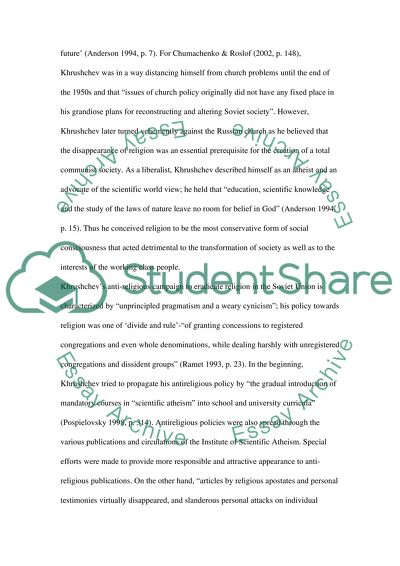How effective was Khrushchevs religious policy Essay. Retrieved from https://studentshare.org/miscellaneous/1558482-how-effective-was-khrushchevs-religious-policy
How Effective Was Khrushchevs Religious Policy Essay. https://studentshare.org/miscellaneous/1558482-how-effective-was-khrushchevs-religious-policy.


